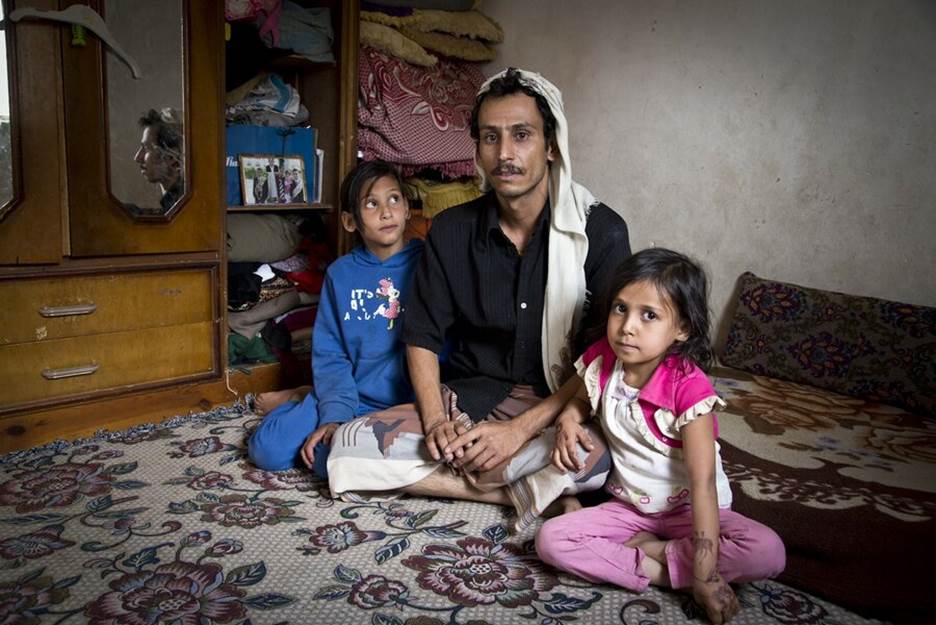In the Spirit of Ramadan, Let Us Remember
By MPAC Policy Bureau

Image credit: WFP/Marco Frattini
“I t was the month of Ramadan in which the Qur’an was [first] bestowed from on high as a guidance unto man and a self-evident proof of that guidance, and as the standard by which to discern the true from the false. Hence, whoever of you lives to see this month shall fast throughout it; but he that is ill, or on a journey, [shall fast instead for the same] number of other days. God wills that you shall have ease, and does not will you to sufferhardship; but [He desires] that you complete the number [of days required], and that you extol God for His having guided you aright, and that you render your thanks [unto Him].” (Surah Al-Baqara, 2:185)
For billions of Muslims worldwide, this weekend marks the beginning of Ramadan. As we approach this holy month, it is important for us to remember those among us who are less fortunate, particularly those within our faith community who have suffered as victims of war, poverty, and humanitarian crises. American Muslims number in the millions within the United States – that’s millions of us who, by sheer virtue of being American, enjoy certain privileges that are otherwise unattainable for far too many people in other parts of the world.
Those in Afghanistan, in Yemen, and beyond have endured decades of hunger, violence, and insecurity, many of whom have now given up all hope of any peace or stability in their lifetime. For those of us who are more fortunate, perhaps the worst injustice we can do to them is to forget their situation. That is why it is all the more incumbent upon us to increase our charity and compassion this Ramadan.
Before we dive in, let’s answer the following question: what is the purpose of Ramadan?
While many may think we fast to feel the hunger of those living in poverty, it is worth noting that if that were in fact the case, God would not ordain Muslims in poverty to fast. Fasting is not the sole facet of Ramadan. The stipulations and duties that God has laid forth before us for this month, when the Holy Qur’an was revealed to the Prophet, go far deeper than mere abstinence from food and drink.
Ramadan is about moderation. It is about letting go of the excesses in life and minimizing distractions to focus on our spirituality. And a large part of that spirituality is to help and support the poor, the orphans, the wayfarer, the refugees, and those who may not even feel comfortable asking for help. That is why the act of giving is so essential to the spirit of Ramadan. As American Muslims, we are blessed with certain privileges and freedoms, including the right to freely express our minds and have our voices heard and access to food and shelter. Many across the globe are not as fortunate.
Sadly, our brothers and sisters in faith and humanity are under siege the world over, including those in Afghanistan and especially Yemen, who are no longer spoken about as they once were. We only remember them when they appear on the news, when it is convenient for the media to report on their suffering, but once they disappear from our screens, we cease to remember that their tragedy, their ongoing crises.
What can we do beyond simply remembering?
Here in America, we have a rich melting pot of Muslims from various racial, ethnic, social, and national backgrounds, including a considerable refugee population. Charity does not always come in the form of money. For those of us who may not have the financial means, we can give even by extending our compassion to Afghan Americans, Yemeni Americans, Palestinian Americans, and other communities whose countries of origin have been afflicted by ongoing conflict. We can get to know our fellow community members better, understand their perspectives and their stories. That is what MPAC believes in: amplify , not occupy.
Ramadan is the training grounds for how we practice our faith as Muslims. The habits we develop during this month are not to simply end once we celebrate Eid. We need to continue the good work beyond the holy month. So let us work in solidarity as the American Muslim community to extend our hand of support and uplift the narratives of those among us who need our compassion and generosity.

